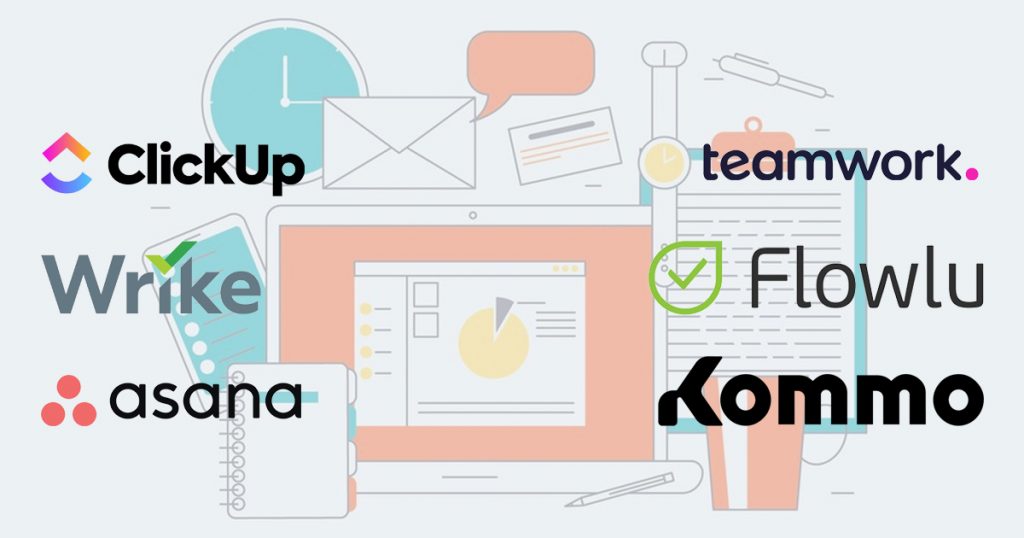In 2025, businesses are embracing smarter ways to stay organized and efficient. Combining a CRM and project management tool is one of the best strategies to simplify workflows, improve customer relationships, and keep projects on track. These integrated platforms bring teams together, offering a one-stop solution for handling client interactions and managing tasks effectively.
What are CRM and Project Management Tools?
CRM, or Customer Relationship Management, focuses on building and nurturing customer relationships by managing leads, tracking sales, and analyzing data to improve interactions. Project management tools, on the other hand, are designed to help teams plan, organize, and execute tasks within deadlines.
By merging these two powerful systems, businesses can streamline processes and improve communication across departments. It’s about aligning customer needs with project goals for better outcomes.
The Differences Between CRM and Project Management Software
While CRM and project management software have some overlapping functionalities, they serve distinct purposes in a business setting. Here’s a breakdown:
Core Focus
CRM software centers on customer interactions and sales pipelines, while project management tools prioritize task coordination and team collaboration.
Data Management
CRMs store customer-related data such as contact details, purchase history, and communication records. Project management software tracks task statuses, deadlines, and resource allocation.
Metrics
CRM metrics revolve around sales, customer satisfaction, and lead conversion, whereas project management metrics focus on productivity, time tracking, and project milestones.
User Base
CRMs are often used by sales and marketing teams, while project management tools cater to operations, development, and administrative teams.
Benefits of Using a CRM with Project Management Tool
Integrating CRM with project management tools provides several advantages for businesses. Here are some key benefits:
- Teams can access the same platform, ensuring consistent updates and seamless collaboration.
- All customer and project information is stored in one place, eliminating data silos.
- Automation features help reduce repetitive tasks and free up time for high-value activities.
- Teams can align project tasks with customer needs, boosting satisfaction.
- Combined insights from CRM and project data enable informed decision-making.
- Integrated systems simplify transitions between sales, planning, and execution stages.
- Businesses can manage growing workloads and client bases without needing additional software.
- Using one platform for CRM and project management reduces expenses.
9 CRM with Project Management Tools to Use in 2025
Many tools now offer combined CRM and project management features, making it easier for businesses to operate seamlessly. Here are nine platforms worth considering:
ClickUp
ClickUp is an all-in-one platform for managing tasks, projects, and customer relationships. It allows users to customize workflows, integrate CRM functionalities, and track progress visually with Gantt charts, calendars, and boards. Its flexibility makes it suitable for teams of all sizes.
Wrike
Wrike offers robust project management tools with built-in CRM features. Teams can manage customer data, track projects, and collaborate in real-time. Wrike’s customizable dashboards and advanced reporting capabilities make it a favorite for project-heavy organizations.
Asana
Known for its user-friendly interface, Asana combines task management with CRM functionalities. Businesses can assign tasks, set deadlines, and monitor customer-related activities, ensuring projects align with client expectations.
Monday.com
Monday.com simplifies team collaboration by integrating CRM and project management tools in one intuitive platform. With automation options, visual dashboards, and seamless integrations, it’s ideal for keeping everything organized and on track.
Teamwork
Teamwork offers a balanced approach to CRM and project management. It helps teams manage client communication, create task lists, and monitor project timelines. Its intuitive tools and collaboration features make it great for small businesses.
Flowlu
Flowlu stands out as an all-in-one platform offering CRM, project management, and financial tools. Teams can manage customer interactions, track project progress, and handle invoicing without switching between systems.
Kommo
Previously known as AmoCRM, Kommo specializes in sales and project management integration. Its AI-powered tools help businesses automate workflows, track leads, and oversee project tasks efficiently.
Insightly
Insightly focuses on simplifying CRM and project management for small to medium-sized businesses. With robust integrations, pipeline tracking, and task management features, it’s designed to optimize operations without overwhelming teams.
Salesforce
Salesforce remains a powerhouse for CRM solutions, and its project management capabilities have grown significantly. With advanced AI tools and customizable dashboards, Salesforce empowers businesses to manage customer relationships and project workflows effectively.
Unlock Your Business Potential with the Right Tools
Combining CRM and project management tools is a game-changer for businesses looking to streamline operations and deliver exceptional results in 2025. These platforms not only simplify tasks but also enhance collaboration and decision-making. By choosing the right tool for your needs, you can transform the way your team works and improve customer satisfaction.
Invest in an integrated CRM and project management tool today to stay ahead in a competitive market and ensure seamless workflows for years to come.
